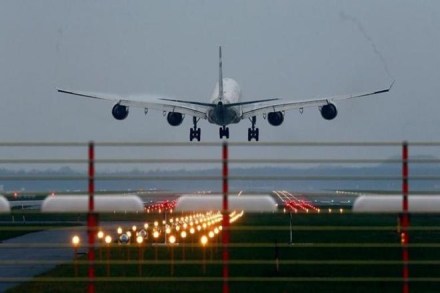While air passenger traffic has grown smartly over the past year, airlines have not been able to raise fares. That’s because they have added too much capacity; analysts say the sweet deals on aircraft purchases that carriers have cut have left them flush with funds. For instance, IndiGo’s domestic passenger traffic increased 27% year-on-year in Q1FY19 but average fares on metro routes were down up to 10% y-o-y in the same period a year ago. This is when the country’s largest domestic carrier added 15% more capacity during Q1FY19 compared to Q1FY18.
Other major airlines like Jet Airways and SpiceJet too have been frantically adding capacity; analysts believe they are afraid of losing market share.
Affordable fares haven’t resulted in a significant increase in industry passenger load factor (PLF) or aircraft occupancy which remained flat at 87.5% in Q1FY19.
Analysts point out that airlines when they place a bulk order, they get themselves a hefty discount. On delivery, they pay the manufacturers just some of the cost.
Next, they sell the aircraft to leasing companies at the market price and lease it back to themselves. In the process they find themselves with a lot of liquidity.
Indian carriers have a fleet strength of 620 aircraft as on July 2018, with an order book of 1,000 planes in the next eight years. The domestic market has grown around 20% y-o-y in FY18 so far.
“Airlines seem happy to place huge orders for new aircraft with the aircraft manufacturers in order to avail of large discounts from them, sell the acquired aircraft to aircraft leasing companies at market prices and lease them back, which result in upfront cash and staggered book profits for the airline companies,” analysts at Kotak Institutional Equities (KIE) noted.
Experts believe that the passenger traffic growth has been fueled by cheap fares and airlines are responding to it with rapid capacity addition, resulting in a weak financial performance.
“Traffic continues to be stimulated by the lower fares on offer. The airlines are rapidly increasing capacity at a time when cost pressures are high. New aircraft are being added at an unprecedented rate which is adding to the sector woes,” Kapil Kaul, CAPA India CEO, explained.
According to KIE, the airlines are desperate to fill deployed capacity with a hope of realising better revenues in the coming months.
“..the industry is quite desperate to book any revenue and is offering large discounts to fill the available capacity and have some confidence about future revenues,” KIE stated.
At a time when the aviation turbine fuel (ATF) is up 35% y-o-y, the airlines have found it difficult to raise fares due to intense competition in the domestic sector. ATF constitutes nearly 40% of an airline’s total cost. The domestic airlines capacity, measured in available seat kilometres (ASK), stood at 134 billion kilometres in 2017-18 and is likely to grow by 18% this fiscal.
Industry executives feel the current fare scenario is unsustainable for airlines and hope for fares to increase in the upcoming quarter.
“The current fare levels are not ideal. Rise in ATF prices and rupee depreciation has added to the problem. I don’t think capacity can be rationalised with so much competition around. The focus is on reducing costs to protect the yields. Fares will increase in the next quarter which is a festival period,” Ajay Singh, SpiceJet, chairman and managing director, recently said.
The competition to fill capacities have forced full-service carrier to give the option of basic economy fare where flyers can buy meals on board. Tata Sons and Singapore Airlines joint venture, Vistara introduced lite fares last month in a bid to generate much-needed cash. Jet Airways has also started offering unbundled fares with meal options to boost revenues.
“Our cost structure is very different from the low-cost carriers. There are some routes that may not be performing to our expectations. The new product (freedom fare) will help us there. But on routes with strong demand, we don’t need this product,” Leslie Thng, CEO, Vistara, told reporters earlier this month.
